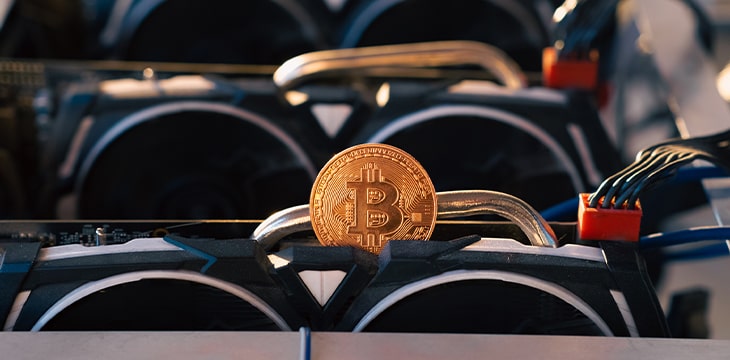|
Getting your Trinity Audio player ready...
|
Block reward mining companies in the United States might have to report to the Environmental Protection Agency (EPA) and the Department of Energy (DOE) soon. Four senators, Elizabeth Warren (D), Sheldon Whitehouse (D-RI), Edward J. Markey (D-MA), and Jeffrey A. Merkley (D-OR), and two members of Congress, Jared Huffman (D-CA 2nd District) and Rashida Tlaib (D-MI 13th Distict), have written a letter to the EPA and the DOE arguing that U.S. based mining operations should be required to report their emissions and energy use.
The six lawmakers wrote this letter after reaching out to seven block reward miners—Stronghold digital mining, Greenidge, Bit Digital (NASDAQ: BTBT), Bit Deer, Riot Blockchain (NASDAQ: RIOT), Marathon (NASDAQ: MARA), and BitFury—and learning about the locations of their facilities, their energy sources, and consumption, and the climate impacts associated with their production.
The outreach to the seven miners revealed that the seven companies had developed a total of over 1,045MW capacity for mining, and each of the miners had plans to significantly increase the size of their operations in the coming years. Three companies that provided clear data regarding their carbon emissions emitted a total of 1.6 million tons, equivalent to about 360,000 cars.
The lawmakers believe that these numbers are substantial, that they are harming the environment and local economies, and that there need to be reporting requirements in place to mitigate the negative externalities of block reward mining.
Reporting emissions
Although the request from the policymakers sounds like another attempt to constrict the blockchain and digital asset industry with regulation, requiring mining companies to report their energy usage and emissions would be a positive development for the industry. Many industries require their participants to report this information, so requesting block reward miners to do the same would align with global business practices.
“I believe it would be beneficial for every industry, not just miners, to report their emissions and energy usage,” said Bryan Daugherty, the Public Policy Director for BSV Blockchain.
“Across the globe, there are various examples of energy rating systems such as ENERGY STAR here in the United States. This energy efficiency rating system was developed by the government to provide simple, credible, and unbiased information that consumers and businesses rely on to make well-informed decisions,” he added.
What should regulations look like?
Blockchain and digital asset market participants, as well as consumers, investors, and policymakers, have been pushing for more regulatory clarity and consumer protection in the various sectors of these industries. They want the industry to be viewed as legitimate and mature so that it can grow.
New policies and regulations are being welcomed, but industry participants do not want them to be draconian like the recent two-year moratorium placed on Proof-of-Work mining operations in New York state.
“The EPA and DOE should seek a balanced regulatory approach to increase legal clarity, improve transparency, provide security for investors, as well as categorize mining operations by the security and utility they provide, separating high volume blockchains maintained for data confidentiality, integrity, and availability, from those that serve unregulated ‘crypto’ markets that consume more energy than the utility they produce,” said Daugherty.
Where are the advocates?
Lobbying efforts against Proof-of-Work mining have been ramping up. Proof-of-Work critics claim that the amount of energy these operations consume is having a negative effect on the environment as well as the towns and cities where the mining facilities are located.
Many blockchain enthusiasts would say that these lobbyists and Proof-of-Work critics are the loud minority because a much larger group of businesses and individuals believe blockchain technologies and digital assets introduce more advantages than drawbacks into the world. However, this larger group is not receiving the same amount of media attention as the naysayers.
“The conversations are currently focused on financial protection of consumers from unregulated security offerings, wasteful use of blockchain resources, and the impact this has on the environment, rather than a healthy conversation centered on the improvements of confidentiality, integrity, and availability of data that a scalable and sustainable blockchain provides a nation,” said Daugherty.
“More focus should be placed upon the social and economic costs and benefits that mining operations have, especially for future utility, data security, energy utilization, and regional economic independence,” he added.
Watch: The BSV Global Blockchain Convention panel, Blockchain mining & energy innovation
https://www.youtube.com/watch?v=z07TPyXw2OE

 02-27-2026
02-27-2026 




